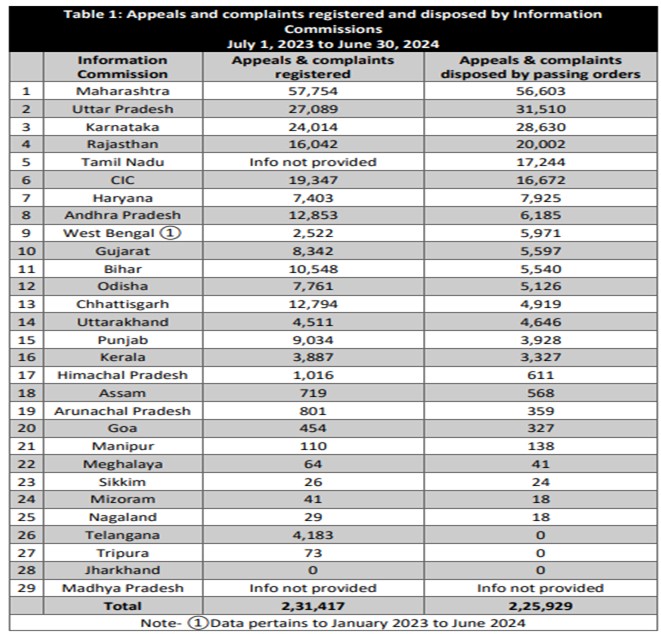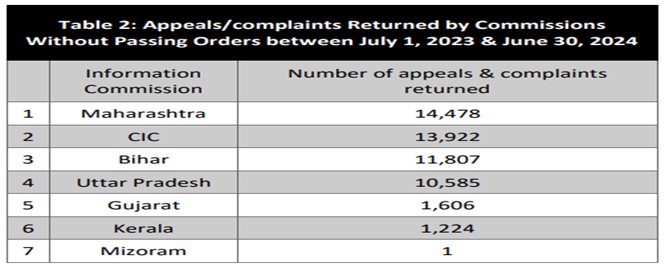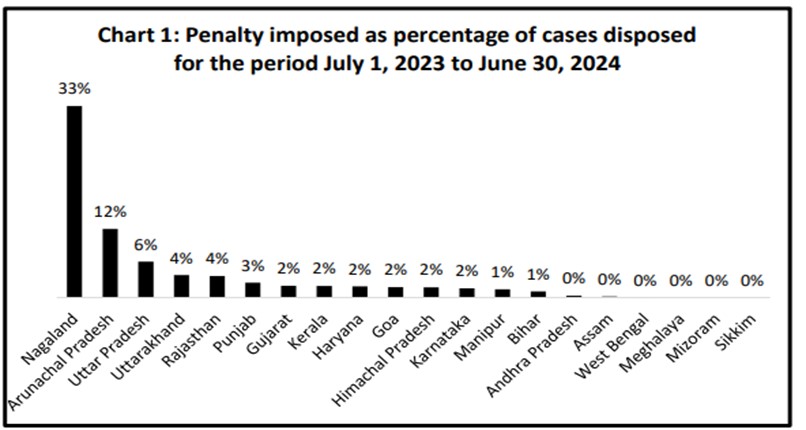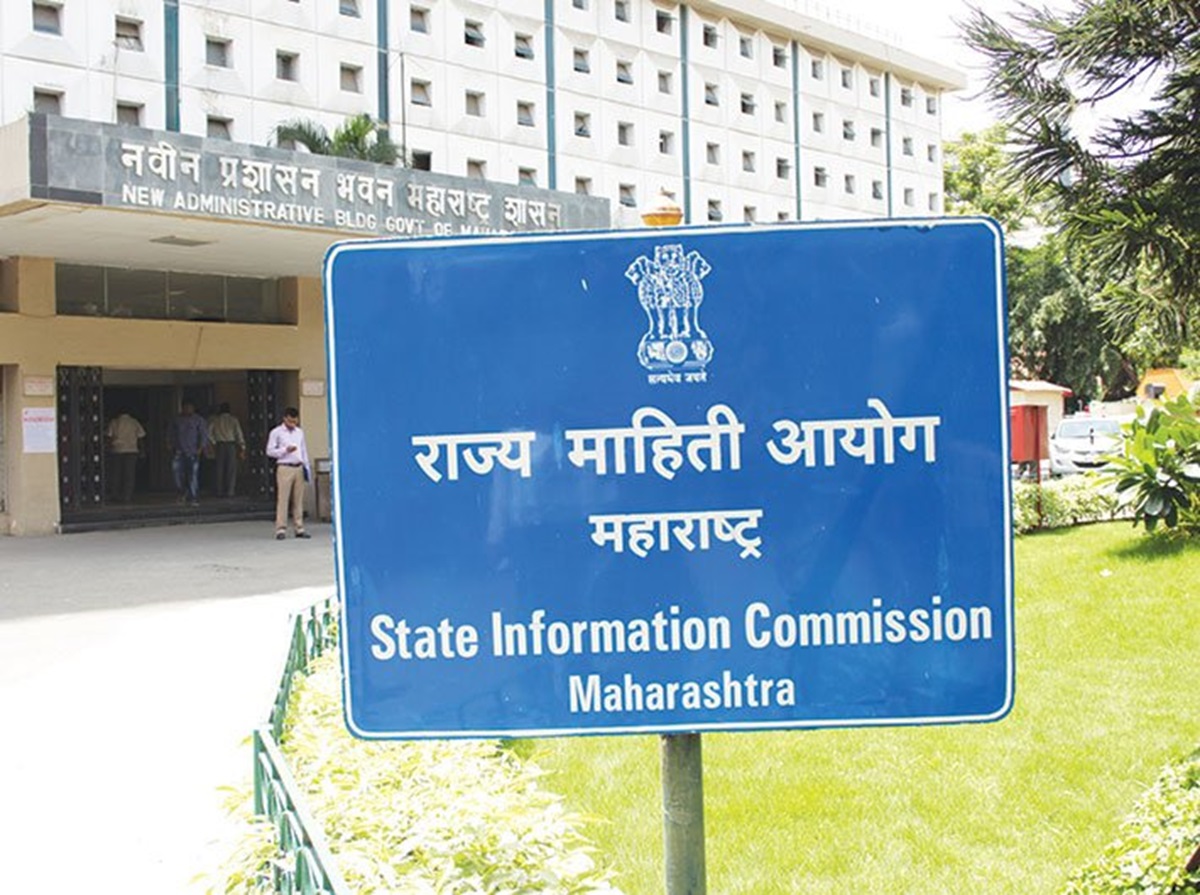On October 12, 2024, India marks 19 years since the implementation of the Right to Information (RTI) Act, a transformative law designed to empower citizens by enabling them to seek information and hold the government accountable. With the promise of greater transparency and accountability. The RTI Act has significantly changed the landscape of governance in India. Information Commissions (ICs) at both central level (Central Information Commission, CIC) and state levels (State Information Commissions, SICs) serve as the final appellate authorities, tasked with upholding the public’s fundamental right to information.
In light of this anniversary, Satark Nagrik Sangathan (SNS) has released a comprehensive report titled “Report Card on the Performance of Information Commissions in India, 2023-24”. This report, compiled from data accessed under the RTI Act, evaluates the performance of all 29 information commissions across the country. It examines key metrics, including the number of commissioners, appeals and complaints registered and resolved, pending cases, estimated waiting times for case disposal, penalties imposed for violations, and the overall transparency of operations.
Methodology of the Report
The report is primarily based on an analysis of information accessed under the RTI Act, from 29 information commissions across India. A total of 174 RTI applications were filed with the Central Information Commission (CIC) and State Information Commissions (SIC). In addition, information has been sourced from the websites and annual reports of information commissions. The report also draws on findings and discussions of previous national assessments of the RTI regime.
Key Findings of the Report
The report reveals troubling trends that pose significant challenges to the effective functioning of the RTI framework:
7 Information Commissions are defunct
Between July 1, 2023, and June 30, 2024, seven information commissions were found to be defunct for varying periods. States affected include Jharkhand, Telangana, Goa, Tripura, Madhya Pradesh, Uttar Pradesh, and Chhattisgarh. Alarmingly, four of these—Jharkhand, Telangana, Goa, and Tripura—remain defunct, leading to a significant backlog in cases.
5 State Information Commissions without Chief
Currently, 5 commissions are operating without a Chief Information Commissioner, which includes the SICs of Chhattisgarh, Maharashtra, Karnataka, Uttarakhand, and Odisha. This lack of leadership hampers their ability to function effectively.
Backlogged Cases
A staggering 4,05,509 appeals and complaints were pending across the 29 information commissions as of June 30, 2024. This represents a significant increase in backlog over the past few years, illustrating the growing challenge of processing requests in a timely manner. Between July 1, 2023, and June 30, 2024, 2,31,417 appeals and complaints were registered, with 2,25,929 cases disposed of during the same period by 28 Commissions. However, using the average monthly disposal rate, the report estimates that it would take the Chhattisgarh SIC an alarming 5 years and 2 months to resolve a single matter. For Bihar, the estimated time is 4 and a half years, while Odisha is projected to take nearly 4 years.

The CIC has been found to return a significant number of cases without issuing any orders—42% of the appeals and complaints it received were returned.
Of the 19 ICs which provided relevant information, the assessment found that seven commissions had returned appeals/complaints without passing any orders during the period July 2023 to June 30, 2024.

The CIC returned nearly 14,000 appeals/ complaints while it registered 19,347 during the period under review- 42% of the appeals/complaints received by the CIC were returned. The CIC website discloses how many appeals/complaints were re-submitted to the CIC after addressing deficiencies. The data reveals that nearly 96% of the cases which were returned to the appellant/ complainant were not re-submitted to the CIC by them. The SIC of Bihar returned 11,807 appeals/complaints which is more than what it registered during the same period – 10,548. The SIC of Kerala returned 1,224 cases while it registered 3,887.
Minimal Penalties for Violations
Analysis of penalties imposed by information commissions reveals a disconcerting trend. As per report, penalties were not imposed in 95% of cases where they could have been. This lack of accountability diminishes the deterrent effect of the RTI Act.
For the period July 1, 2023 to June 30, 2024, a total of 4,480 show cause notices were issued to PIOs under the penalty clause of the Act by the 18 commissions which provided relevant information. The SIC of Haryana issued the maximum number (3,412) followed by Punjab (691) and Andhra Pradesh (138). The SIC of Gujarat stated that it had not issued any notices under section 20, even though it imposed penalty in multiple cases. The CIC and SICs of Bihar, Chhattisgarh, Karnataka, Rajasthan, Uttar Pradesh and Uttarakhand stated that they did not maintain this crucial information.

The SICs of Maharashtra, Madhya Pradesh, Odisha and Tamil Nadu did not provide any reply or denied the information. In terms of penalty imposition, of the 23 commissions which provided relevant information, penalty was imposed in a total of 3,953 cases. Penalty amounting to Rs. 8.88 crore was imposed by 24 commissions during the period under review. The SIC of Uttar Pradesh imposed the highest amount of penalty (Rs. 4.85 crore), followed by Chhattisgarh (Rs. 1.83 crore), Karnataka (Rs. 93.95 lakh), and Haryana (Rs. 38.18 lakh)
Lack of Transparency in Reporting
Section 25 of the RTI Act mandates each commission to prepare an annual report on its implementation activities to be submitted to Parliament or the state legislature. However, 18 out of the 29 ICs (62%) failed to publish their annual report for the 2022-23 fiscal year, raising further concerns about transparency and accountability
Additionally, 18 out of 29 ICs (62%) have not even published their annual report for 2022-23. Only the CIC and SICs of Assam, Chhattisgarh, Gujarat, Mizoram and Rajasthan have published their annual report for 2023 (either calendar year 2023 or financial year 2022-23) and made them available on their official websites. The SICs of Arunachal Pradesh, Kerala, Manipur, Nagaland and Uttarakhand stated that they had published their annual reports for 2022-23, but these were not available on their respective websites. In terms of availability of annual reports on the website of respective ICs, 33% of ICs have not made their latest annual report available on their website, as the report reveals.
RTI Act 2005
The Right to Information (RTI) Act was enacted in India on October 12, 2005, to promote transparency and accountability in governance. It empowers citizens to request information from public authorities, thereby facilitating access to government records. The act mandates timely responses from public information officers and establishes a framework for appeals through Information Commissions at both central and state levels. Designed to combat corruption and enhance civic engagement, the RTI Act has been instrumental in empowering citizens. However, challenges such as backlogs and defunct commissions have emerged, highlighting the need for ongoing reforms to strengthen its implementation.
As India celebrates nearly two decades of the RTI Act, the findings of the report highlight a pressing need for reform within the information commissions. The existing challenges, including defunct commissions, leadership vacancies, excessive backlog, and inadequate penalties, undermine the spirit of the RTI Act and hinder its effectiveness in promoting transparency. To address these issues, immediate steps must be taken. Appointments for vacant commissioner positions should be expedited to restore functionality in the defunct commissions. Additionally, the government should focus on increasing the efficiency of information commissions by investing in training and resources to handle the growing volume of appeals and complaints.
The full report can be accessed here:
Related:
Online RTI Applications in the last 4 years
India’s RTI Act struggles to survive as backlog, lack of staff persists
Used for checking corruption, irregularities for 15 yrs, RTI being turned into ‘dead letter law’

